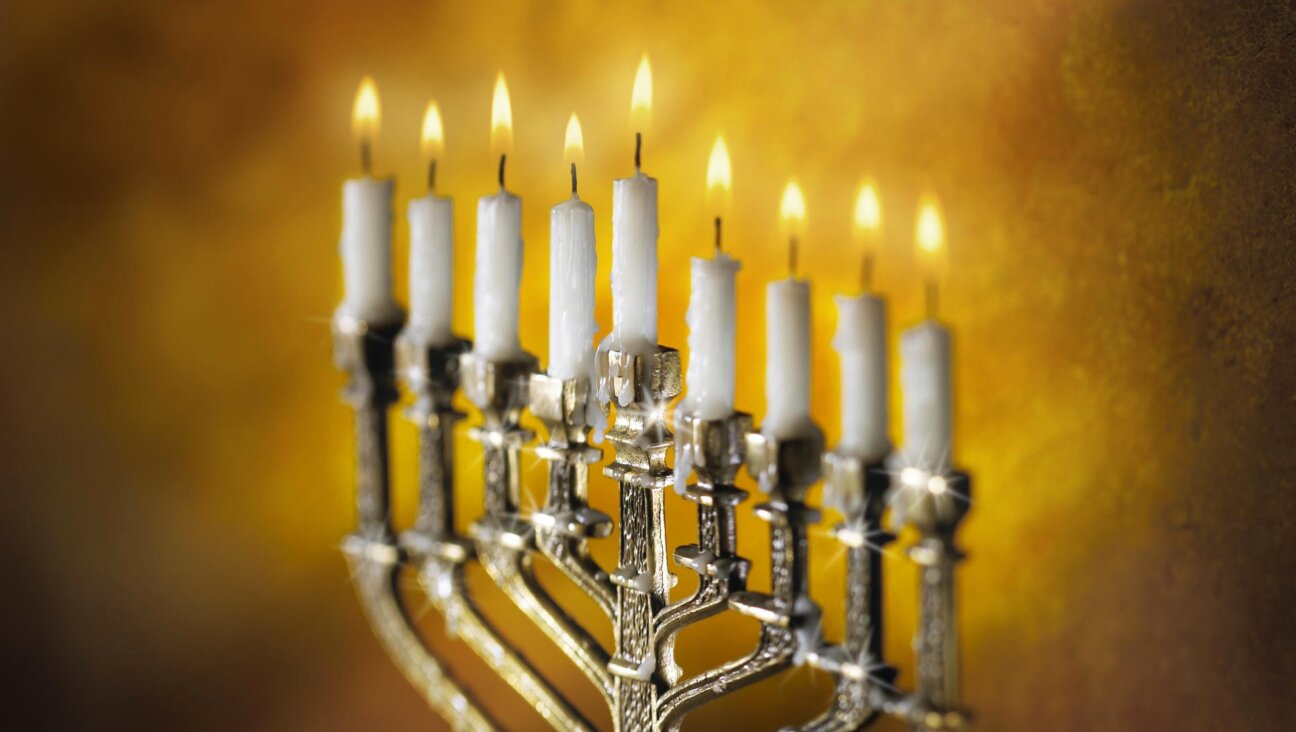Next Pope Could Be African or Latino, Cardinal Who Deals With Jews Says

Small World: Cardinal Kurt Koch says there?s no reason the next pope won?t be from the developing world. Image by getty images
Cardinal Kurt Koch, a close aide of Pope Benedict who will cast his vote for the next leader of the Roman Catholic Church, says there is no reason why the new pontiff cannot be African or Latin American.
Koch, head of the Vatican department that deals with Christian unity and relations with Jews, also said he had had no doubt that Pope Benedict would resign rather than rule for life, and said that future popes would be free to do the same.
“The challenges of the Church in the world are very different on different continents: in Africa, in Asia, in Latin America. The question is ‘where will the challenges be greater, on which continent, should it be a pope for, above all, Latin America, for Africa … ,” Koch told Reuters in an interview.
“I can imagine taking a step towards a black pope, an African pope or a Latin American pope. I can imagine this.”
Koch, 62, a soft-spoken Swiss, will be one of the 117 cardinals under the age of 80 who are eligible to enter a secretive conclave to elect the next pope that is expected to start in mid-March.
There has been much speculation in the Church on whether the man to succeed Benedict should be a non-European, which would be a first in more than a millennium.
While the Church in Europe is polarised and has dwindling congregations, the Church in Africa is growing and in Latin America it remains large and vibrant despite inroads by Protestant evangelical groups.
THRIVING
There are several leading candidates from outside the Old Continent.
Latin Americans include Brazilian Odilo Scherer, archbishop of the huge diocese of Sao Paulo and Argentine Leonardo Sandri, who works in the Vatican and whose parents are of Italian origin.
Peter Turkson from Ghana, head of the Vatican’s justice and peace department, is often tipped as Africa’s front runner.
There is a thriving Church in the Philippines, the largest Catholic country in Asia, birthplace of one cardinal who is often mentioned as a candidate, Luis Antonio Tagle.
Asked to provide a job description for the next pope, Koch paused for few seconds and said: “I think each pope has to have four qualities: First of all, deep faith, then, sound doctrine, charisma and a capacity to govern.”
The next pope, whatever his age, could rule for life if he wanted to, like most of his predecessors, or resign for health reasons, Koch said.
Still, he acknowledged that the cardinals were navigating in uncharted waters.
The last pope to leave office willingly was Celestine V, a saintly hermit whose served only a few months before abdicating in 1294 and was imprisoned by his successor in a castle south of Rome. Another pope, Gregory XII, reluctantly abdicated in 1415 to end a dispute to a rival claimant to the papacy.
“It is clear that this is a situation that is totally new. The cardinals must choose the new pope with the presence of the living pope. We still don’t know what effect it will have. It makes a great difference if the pope is dead or alive,” Koch said.
Benedict has said he would be “hidden to the world” after his resignation on Feb. 28 and the Vatican has said he will not try to influence the choice of his successor. He will move to the papal summer residence south of Rome and then in April, after the conclave, into a convent inside the Vatican.
VERY SECRET
Koch cautioned against making predictions on who the next pope could be.
“The election is very secret, even in the conclave, no one knows who the other person is voting for as we put our ballots in the chalice,” he said.
Koch, who was in the room when Benedict announced his resignation to a small group of cardinals in Latin on Monday, said he was surprised only by the timing.
“I always said if any pope would resign it would be Benedict … this move was very characteristic of his personality. He never wanted to put himself at the centre of things,” Koch said.
“We now see that behind the ministry (of any pope) there is a human person … these are decisions of individual conscience. John Paul decided not to come down from the cross, as he put it, and retained the ministry to his death,” Koch said.
“John Paul reflected long and hard on that and came to his decision. Benedict is another person and he came to another decision and I think we have to accept this decision of conscience and not think about all the consequences that it could bring about.”
A message from our Publisher & CEO Rachel Fishman Feddersen

I hope you appreciated this article. Before you go, I’d like to ask you to please support the Forward’s award-winning, nonprofit journalism during this critical time.
We’ve set a goal to raise $260,000 by December 31. That’s an ambitious goal, but one that will give us the resources we need to invest in the high quality news, opinion, analysis and cultural coverage that isn’t available anywhere else.
If you feel inspired to make an impact, now is the time to give something back. Join us as a member at your most generous level.
— Rachel Fishman Feddersen, Publisher and CEO























